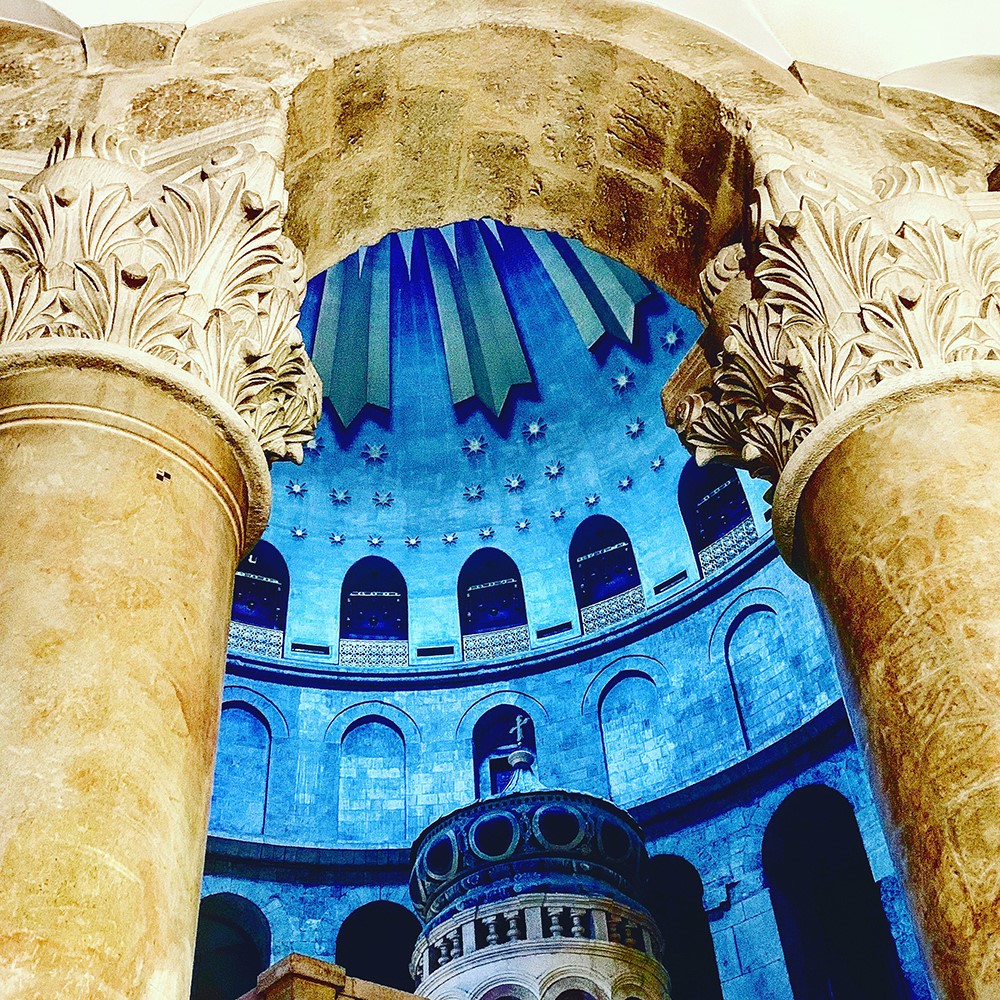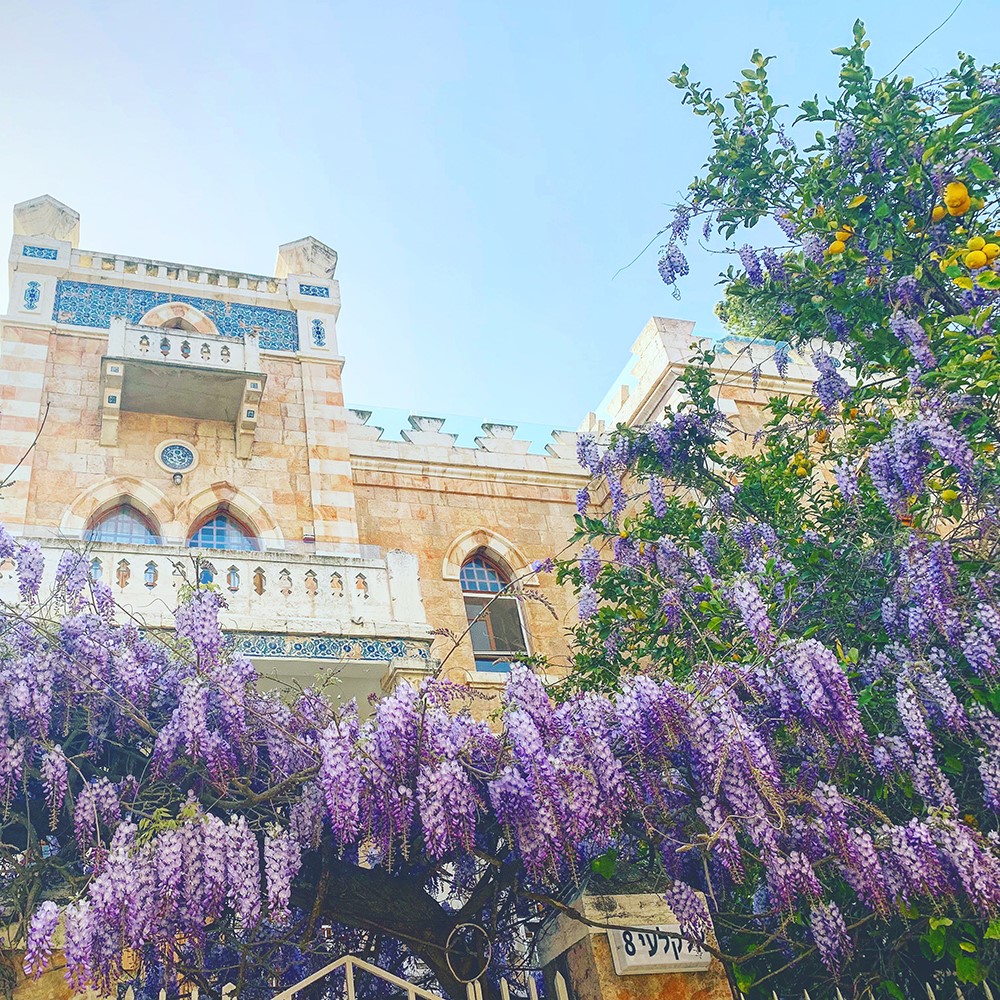Easter message from DSPR
 “Blessed Easter”
“Blessed Easter”
written by Dr. Audeh Quawas, Chairperson,
DSPR Central Committee, and
Dr. Bernard Sabella, Executive Secretary
Department of Service for Palestinian Refugees of the Middle East Council of Churches
In the local Palestinian traditions of celebrating the crucifixion and resurrection of our Lord Jesus Christ during Holy Week, an undeniable function has been the affirmation and preservation of the indigenous Christian community. Our forefathers and foremothers, grandparents, parents, our children and we have, over the centuries, preserved and passed the torch. Easter in the Holy Land is as much part of our communal identity as it is of our personal faith. It is in this context that the Easter greeting of Christ is risen! And its response: Indeed He Is! becomes a greeting that reaffirms the community. The act of resurrection while deepening our Christian roots and attachments teaches us also that the empty tomb is a universal symbol that overcomes narrow identifications and simply reaffirms life over death.
 In today’s Holy Land, and indeed in our world, amidst the hard to manage Covid-19 pandemic, the universal symbol of triumph of life over death is quite relevantly accentuated. The simple yearning to a life lived to its fullest in a clean environment, in just and humane relationships, in equitable distribution of wealth and in equal opportunities for education, health care, housing and employment robs all of our governing systems, as they confront the pandemic, of some of their legitimacy. The saying that “we are all in the same boat” is reflective of the world-wide pandemic but the waters on which “our boat” floats are different from the waters of others. In the Palestinian Territories, despite medical coordination and some cooperation between Israelis and Palestinians to combat the virus, the Israeli occupation forces continue to raid Palestinian homes, arrest civil and political activists and even destroy homes, purportedly built without licensing. In Jerusalem, the City of the Resurrection, Palestinian officials who seek to help out during the pandemic are arrested by the Israeli authorities and often humiliated in the process because the Israeli government does not want to share the City with the Palestinians living in it.
In today’s Holy Land, and indeed in our world, amidst the hard to manage Covid-19 pandemic, the universal symbol of triumph of life over death is quite relevantly accentuated. The simple yearning to a life lived to its fullest in a clean environment, in just and humane relationships, in equitable distribution of wealth and in equal opportunities for education, health care, housing and employment robs all of our governing systems, as they confront the pandemic, of some of their legitimacy. The saying that “we are all in the same boat” is reflective of the world-wide pandemic but the waters on which “our boat” floats are different from the waters of others. In the Palestinian Territories, despite medical coordination and some cooperation between Israelis and Palestinians to combat the virus, the Israeli occupation forces continue to raid Palestinian homes, arrest civil and political activists and even destroy homes, purportedly built without licensing. In Jerusalem, the City of the Resurrection, Palestinian officials who seek to help out during the pandemic are arrested by the Israeli authorities and often humiliated in the process because the Israeli government does not want to share the City with the Palestinians living in it.
Of concern to us is the status of the more than fifty thousand Palestinian workers employed within Israel. They have been placed in a difficult situation, since if they opt to stay in Israel, they would be exposed to infection, given the higher rate of infection in Israel and the fact that their housing and overall hygiene conditions at their workplace do not meet minimum standards of safety. If, however, they opt to come back to the Palestinian Territories, and some did indeed come back including those few already infected, they are asked to be in quarantine for 14 days and undergo the required tests. Another group of concern are the more than five thousand Palestinian prisoners in Israeli jails. At this time of disease there is worry and concern that these prisoners, in confined conditions, could become easily infected, in particular the high risk group of older and chronically ill prisoners find themselves in a truly precarious situation.
 All in this Holy Land are suffering the effects of this disease at a time when the faithful of the three religions are set to celebrate their respective high holidays. If the spread of the disease teaches all of us a lesson, particularly as we are all home-confined and obliged to celebrate separately, it is that systems based on negating the other either through injustice or through political expediency would not stand the test of times and certainly not the test of a pandemic or other natural disasters. Hopefully people, across the divide, would start learning this lesson and work towards genuine and humane relationships that could sustain all of us, here and elsewhere, in the face of known and unknown dangers. In a couple of weeks our Muslim neighbors would be celebrating the fasting month of Ramadan. It will not be a ‘regular’ month of fasting as the pandemic affects live styles and necessitates that a majority of the faithful refrain from the strict sunrise to sundown fasting. The restrictions posed on religious celebrations remind all of us that we need a joint belief in Life over Death that would transform our lives and our ways of thinking into a harmonious colorful rainbow made up of our different religious, cultural and social traditions.
All in this Holy Land are suffering the effects of this disease at a time when the faithful of the three religions are set to celebrate their respective high holidays. If the spread of the disease teaches all of us a lesson, particularly as we are all home-confined and obliged to celebrate separately, it is that systems based on negating the other either through injustice or through political expediency would not stand the test of times and certainly not the test of a pandemic or other natural disasters. Hopefully people, across the divide, would start learning this lesson and work towards genuine and humane relationships that could sustain all of us, here and elsewhere, in the face of known and unknown dangers. In a couple of weeks our Muslim neighbors would be celebrating the fasting month of Ramadan. It will not be a ‘regular’ month of fasting as the pandemic affects live styles and necessitates that a majority of the faithful refrain from the strict sunrise to sundown fasting. The restrictions posed on religious celebrations remind all of us that we need a joint belief in Life over Death that would transform our lives and our ways of thinking into a harmonious colorful rainbow made up of our different religious, cultural and social traditions.
In spite of the small size of Palestine/Israel the land is beautiful not simply for its religious associations but also for the variations of its Flora and Fauna and for its invocation of history and the countless peoples who passed by it. As spring and the magic of nature allow for wild flowers and greenery to blossom atop of hills, one cannot but wonder how we usually miss to enjoy this magic of land as we are embroiled in a seemingly endless conflict amidst our respective daily and life chores. For us, the message of the Resurrection cannot but be part of the messages of hope and resurrection found in the Abrahamic religions. If we cannot see the other from the prism of our religious belief, especially as we experience the devastating effects of the pandemic, then we are failing not only those others but our own beliefs as well.
May the message of Easter bring all of us peace, tranquility and hope. From all in DSPR with our Easter greeting Christ is Risen! Indeed He Is!
